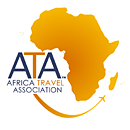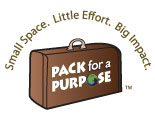We use Land Rover Defenders as we feel they are the best vehicles for these types of trips. A permanent 4WD with a fuel efficient and sturdy turbocharged diesel engine combined with coil spring suspension provides best comfort as well as off road performance. A very popular safari vehicle means spare parts are readily available should we require to restock.
The vehicles are all manual transmission with 300Tdi engines and therefore are older Land Rover vehicles (1994 – 1998). There is a very good reason why we use these vehicles. Anything built after 1998 and all modern vehicles are computerised – computers hate dust, vibrations and moisture and therefore are unreliable through the African continent. Common rail engines are too sensitive to the quality of fuel and often suffer blocked injectors through areas where the quality of fuel is below average. A 300Tdi engine is robust and does not suffer from low grade diesel.
We have purposely chosen Land Rover, a vehicle that is not complicated, robust and suited to the harsh African conditions; they are comfortable, functional, practical and sturdy working vehicles.
The roads and harsh conditions take their toll on the vehicles despite the extensive mechanical work undertaken prior to and during each expedition. Occasionally we do experience a breakdown. It is unrealistic to think this will never happen considering the harsh conditions. This is totally normal and adds to the overlanding experience as well as an interesting blog and diary entry! If everything went smoothly all the time there would not be any great stories to tell your friends when you return home!
Each vehicle is equipped with an easily erected large free standing Oz Tent (RV3 or RV 5) with inbuilt ground sheet and mosquito netting, camp beds, mattresses, camping chairs, small cooler, inverter to charge small appliances, CB radio for communication, stereo, fire extinguisher, basic first aid kit, cutlery and crockery, spare tyres, basic tool kit and essential spare parts.
The interior of the vehicle has been adapted to maximise storage and security. The lead vehicle carries a comprehensive tool kit, extensive kitchen and food storage, spare parts and extra jerry cans for fuel and water.



